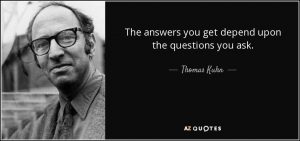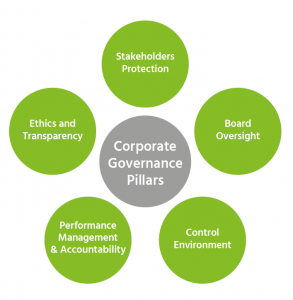A paradigm is a pattern, an example, or model of something. It also means a perspective, a standard. A paradigm is a way of looking at something. The word paradigm pops up a lot in academics, science, and philosophy and business world. The information that the Earth is round is a paradigm. Similarly, Nicolas Copernicus researched that the Earth revolved around the sun. Although he was not the first scientist to propose it, his bold return to the theory (first proposed by Aristarchus of Samos in the 3rd-century B.C.) had significant an d far-reaching effects in the evolution of scientific thought. Galileo Described the Law of the Pendulum. It gave birth to clocks. In modern times, the physicist and cosmologist Prof. Stephen Hawking discovered black holes and the cosmos. Newton is credited for law of motion. Each invention has brought about a paradigm shift in our living and thinking.
d far-reaching effects in the evolution of scientific thought. Galileo Described the Law of the Pendulum. It gave birth to clocks. In modern times, the physicist and cosmologist Prof. Stephen Hawking discovered black holes and the cosmos. Newton is credited for law of motion. Each invention has brought about a paradigm shift in our living and thinking.
A paradigm shift which is also called radical theory change is a concept identified by the American physicist and philosopher Thomas Kuhn (1922–1996); it is a fundamental change in the basic concepts and experimental practices of a scientific discipline. Kuhn described scientific work done within a prevailing framework as paradigm. His 1962 book ‘’The Structure of Scientific Revolution’’ talked about term paradigm shift, which has since become an English-language idiom. People tend to use the word paradigm shift loosely sometimes.
Kuhn made several notable claims in his book concerning the progress of scientific knowledge that scientific field undergoes periodically. It does not solely progress in a linear and continuous way, and that these paradigm shifts open up new approaches to understanding what scientists would never have considered valid before; and that the notion of scientific truth, at any given moment, cannot be established solely by objective criteria. Competing paradigms are frequently incommensurable (not able to judge by the same standards) that is, they are competing and incompatible accounts of reality. Thus, our comprehension of science can never rely wholly upon “objectivity” alone. Science must account for subjective perspectives as well, since all objective conclusions are ultimately founded upon the subjective conditioning. If there are few scientists working on a topic, each one will be having a different viewpoint on it. This means one fact can have different meanings when seen from different perspectives. The perspective each person adopts influences what is considered central or obvious. Some perspectives can appear as obscure.
Kuhn also has mentioned in his book that some innovations took place without evocative research. Archimedes had been working on a method to find the density of an irregularly shaped object, and was taking a break at the baths. In other words, he suddenly got an insight which he called “eureka moment” the principle was the result of previous study combined with a sudden insight.
Since the 1960s, the notion of a paradigm shift has also been used in numerous non-scientific contexts to describe a profound change in a fundamental model or perception of events, even though Kuhn himself restricted the use of the term to the physical sciences.
A truth about Paradigm shift is that it is sporadic. In the modern world we have got so used to creative destruction; it refers to the nonstop product and process innovation mechanism in scientific, education and business world. The concept was coined by Joseph Schumpeter (1942), who considered it ‘the essential fact about capitalism’. A paradigm shift can be defined as an important change that happens when the usual way of thinking about or doing something is replaced by a new and different way, which Schumpeter called ‘’creative destruction’.
Whether we like it or not a sporadic paradigm shift in business management keeps happening. It’s a shift from a firm-centric view of the world in which the firm’s purpose is to make money for its shareholders to a customer-centric view of the world in which the purpose of the firm is to add value for customers.
Another paradigm shift is an up-and-coming corporate governance framework that derives from the recognition by CEOs, board of directors, institutional investors, banks, and asset managers. The economic impact of a myopic approach to managing and investing in businesses has become abundantly clear and has been generating rising levels of concern across a broad spectrum of stakeholders, including corporations, investors, policymakers and academics. People look at organizations from ethical point of view; therefore corporate governance requires two levels of analysis: the internal concerns of corporate agency and the emergent effects on social welfare. People at large disapprove of organizations which don’t practice transparency.
There are many paradigm shifts occurring in medicine today. Hospitals have started thinking at their business model from patient cantered point of view. The patient’s experience matters. The biggest shift is happening in the field of psychiatry. The world is seriously concerned about mental health today. Most medical scientists and pharma companies are researching on underlying pathology of diseases for and treating it. The paradigm shift towards treating psychiatry as an important and valuable field is slow, yet the tides are turning in its favour. It is amusing to see that in a world where we know so much, where technology is so advanced that varied information is available to a person in split seconds; we still have not been able to discover the mystery of the human brain and what exactly is mind and its full effects on the body.
Another shift in medicine is the issue of overspecialization. As more information is exposed because of Internet, it is deemed unfeasible to be well versed in everything and so specialties began to arise and collaboration between teams of doctors have started working together. The problem is that this trend of overspecialization has led to an undetermined amount of doctors consulting on one patient case. This makes the patient feel disconnected from their care and more confused due to often contradictory instructions placed by various expert doctors.
The field of education is under transformation at all levels. In a globalized marketplace with advancing technology is a pressing concern for educators and policymakers in order to help students learn and develop and prepare students for life after graduation. According to the U.S. Department of Labor, 65% of today’s grade school students will end up employed in jobs that have yet to be discovered. This signifies a shift in demand for competencies and expertise, where jobs are now utilizing skills such as non-routine interpersonal and non-routine analytic skills, compared to previous decades that were more focused on routine cognitive and routine manual skills. Additionally, the kind of things that were once easy to teach are now easy to automate, digitize or outsource, creating the need to rethink the role of teachers in education.
As the role of teachers change, the question before educators and policymakers is how schools can adopt to the changing demand of skills, and the digital revolution. This is further compounded by shifts in the economy, where the digital economy is now becoming the main economy, and schools will now be confronted with challenges and opportunities as they adopt to help students learn. Paradigm shift is taking place in organization of schools itself. While education today is mostly about the system, content, and mastery (specialization again), we are getting half baked masters everywhere. The fact is that inexperienced substitute teachers go to the class rooms to teach.
In the words of Sean Covey, paradigms are like glasses, when you have incomplete paradigms about anything in general, it’s like wearing glasses with wrong lenses, which affect how you see everything.














































